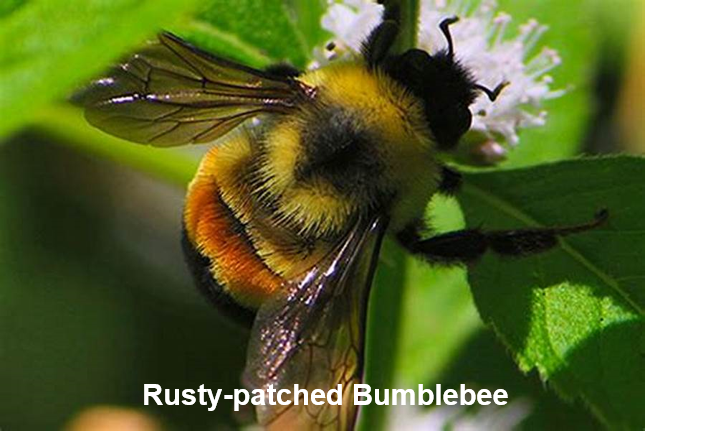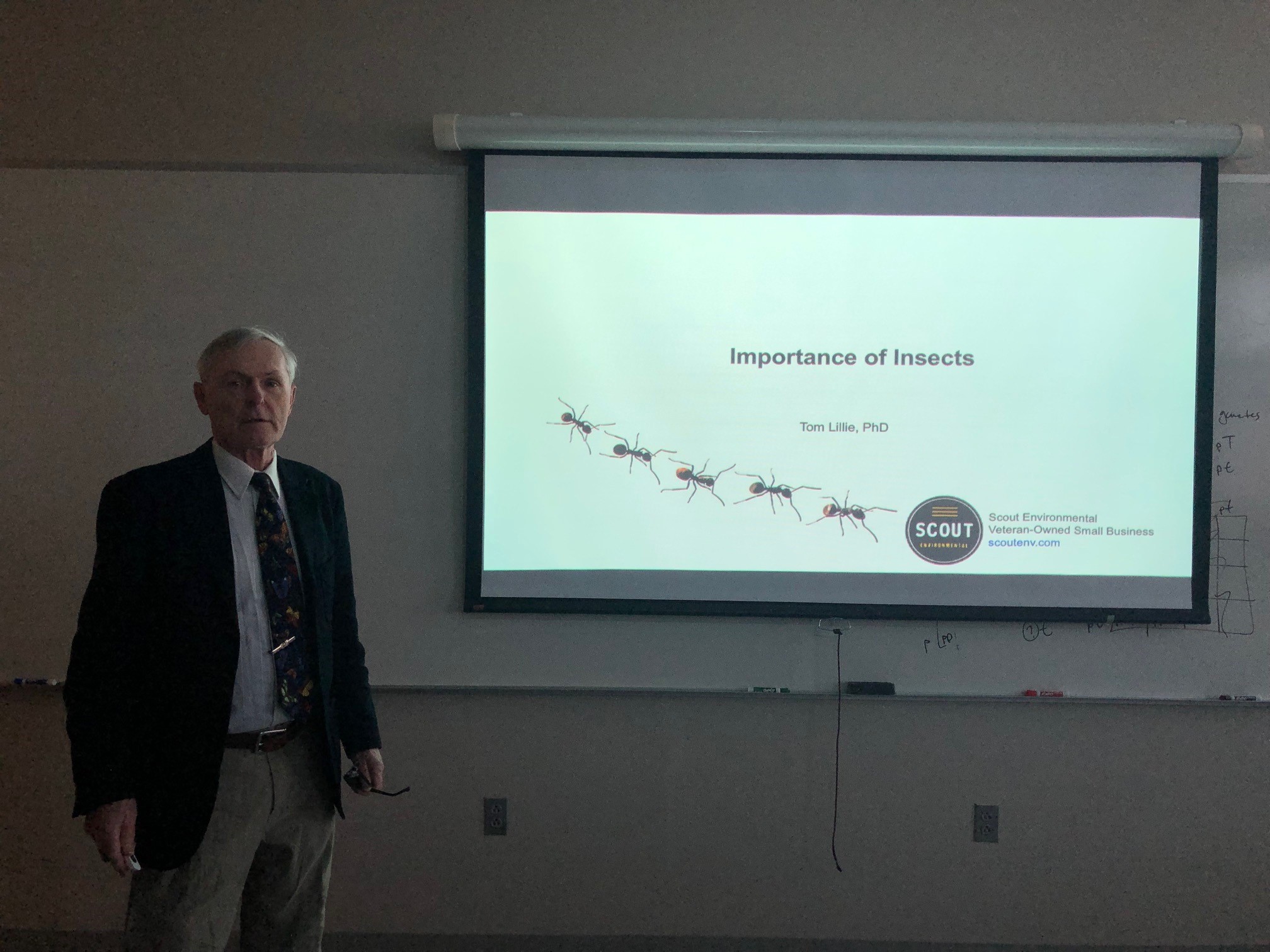Scout Environmental has been closely tracking recent articles on the global demise of insects. The November 27, 2018 issue of the New York Times Magazine reported results of long-term studies in Puerto Rico and Germany. Insect biomass in a Puerto Rican rain forest declined 30-60 times and temperature increased 2 degrees Celsius during a 36-year period (1976-2012). Lizards, frogs, and birds that feed on insects also declined. A more recent study in 63 nature protection areas in Germany documented a 76-82 percent decrease in flying insects over a 27-year period (1989-2016).
National Geographic and The Guardian published related articles in February 2019 following an in-depth review of 73 historical reports of insect decline from around the world. The study authors predict the extinction of 40% of the world’s insect species in the next few decades if corrective action is not taken. Pollinators such as butterflies, moths, bees and wasps, and decomposers such as dung beetles are the groups at greatest risk.
the extinction of 40% of the world’s insect species in the next few decades if corrective action is not taken. Pollinators such as butterflies, moths, bees and wasps, and decomposers such as dung beetles are the groups at greatest risk.
A 2-degree Celsius change in temperature is a likely contributor to the demise in the Puerto Rican rain forest given the strong relationship between temperature and insect development. Other possible factors include habitat loss from intensive agriculture and urbanization, pollution from synthetic pesticides and fertilizers, and pathogens and introduced species. Scientists plan to continue the studies in Puerto Rico and Germany with an eye toward determining the underlying causes. Another study has also begun in Denmark to monitor long-term changes in insect biomass.
 Closer to home, scientists in the U.S. have documented sharp declines in individual species. Monarch butterfly populations fell by 90% from 1995-2014 and the Rusty-patched bumblebee which once occurred in 28 states dropped by 87% in 20 years. On a positive note, recent counts of monarch butterflies show a dramatic increase thanks to efforts to restore habitat along the butterfly’s migratory route.
Closer to home, scientists in the U.S. have documented sharp declines in individual species. Monarch butterfly populations fell by 90% from 1995-2014 and the Rusty-patched bumblebee which once occurred in 28 states dropped by 87% in 20 years. On a positive note, recent counts of monarch butterflies show a dramatic increase thanks to efforts to restore habitat along the butterfly’s migratory route.
Declines of the magnitude predicted could have a devasting impact on our economy and way of life. Eighty percent of plants depend on insects for pollination and 60% of birds depend on insects as food. Much of the fruits and nuts consumed by humans and forage required for cattle production are pollinated by bees. Loss of insects in certain parts of China have already led fruit growers to recruit people to use feather dusters to pollinate apple and pear trees. Each worker can service only ten trees per day at a cost of $19. Technology and human substitutes cannot match the efficiency and effectiveness of nature.
Up front planning and environmental analysis with an eye toward sustainable development is critical to reversing the trend. Restoring habitat in previously disturbed areas can also help. Scout Environmental is ready to assist by preparing comprehensive land use plans and in-depth environmental analysis to assess potential impacts and recommend mitigation measures. Our staff of knowledgeable and experienced professionals can develop the necessary documents to support sound decisions and minimize impacts. Contact hello@scoutenv.com to discuss your planning needs.
Author Tom Lillie presenting to school children on the importance of insects.














